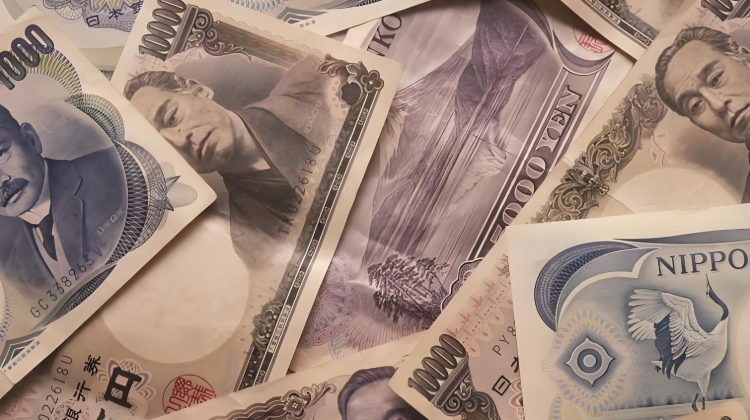Yen Soars to Six-Week High
Advertisements
- April 18, 2025
This past week, the foreign exchange market experienced significant volatility, influenced by a web of geopolitical tensions and macroeconomic data releases. The Japanese yen saw a considerable appreciation in value amidst rising inflation in Tokyo, while the dollar index faced some declines due to relatively low holiday liquidity. However, it still maintained a strong overarching position. The currency dynamics throughout this month reflect heightened expectations surrounding monetary policy, particularly for the U.S. dollar, while the euro bears the brunt of weak economic data and diverging policy stances.
On Friday, the yen hit a low of 149.47 against the dollar, marking its weakest point since October 21. On that day, the yen was down by 1.27%, with potential weekly losses reaching as high as 3.38%, which would be the largest since July. The core Consumer Price Index (CPI) in the Tokyo region saw a year-on-year increase of 2.2%, surpassing the expected 2.1% and a notable rise from 1.8% in October. This data has reinforced market speculation surrounding a potential interest rate hike by the Bank of Japan next month. According to insights from prominent financial analysts, the yen has become a primary currency for momentum trading, largely due to the thinner market conditions leading up to the Thanksgiving holiday, which has eased upward pressure on the yen. Should the Bank of Japan release any hawkish signals, the yen's appeal will likely be further enhanced. Nonetheless, the uncertainty remains regarding whether inflation in Tokyo can drive improvements in nationwide data, making future central bank policy announcements particularly crucial.

Meanwhile, the dollar index saw a slight retreat but continued to exhibit overall strength. It dipped by 0.31% on Friday, closing at 105.74, while momentarily touching a low of 105.61, a mark not seen since November 12. Despite this decline, the dollar index has managed an accumulation of a 1.78% increase in November, sustaining its upward trend. Drivers behind this strength can partially be attributed to anticipations surrounding a new government's prospective rollout of deregulation and fiscal stimulus measures. Such policies benefit the dollar. However, this strength has also dampened the recent gains in both the yen and the euro. Despite the dollar's impressive performance over the past few weeks, it might encounter some pressures in the short term. On one hand, there's a 66% probability that the Federal Reserve will cut rates by 25 basis points in December, which has bolstered market expectations for a deceleration in the pace of rate cuts as the Fed approaches neutral territory. On the other hand, the upcoming release of November's employment report next Friday is poised to capture the market's attention, potentially providing more guidance for the Fed's subsequent actions.
In terms of the euro, its monthly performance has been rather underwhelming. Although the euro rose by 0.24% against the dollar to reach 1.0578 on Friday, it recorded an overall decline of 2.8% for the month, marking its most significant drop since May 2023. Despite consumer price growth in France matching expectations and German inflation remaining steady, there are continuing concerns regarding a lack of significant upward movement, added to a backdrop of policy disagreements within the European Central Bank (ECB). Some ECB officials have recently expressed divided views, with some advocating for substantial rate cuts in December, while others are urging a more cautious approach. This degree of policymaking uncertainty has put pressure on the euro's performance, and in the short term, the euro could continue to face downward forces. However, a surprise weakness in U.S. employment data or a stall in the dollar's momentum may present a brief opportunity for the euro to regain some ground.
Looking ahead, the yen's performance will be of utmost significance. The market is brimming with anticipation regarding possible changes in the Bank of Japan's policy—a situation akin to a tightly wound spring that could trigger substantial fluctuations. Should inflation in Tokyo consistently exceed expectations, it will significantly impact various sectors, including household consumption and corporate costs, leading to an imbalance in yen supply and demand that could result in its appreciation. Alternatively, a sudden uptick in global risk aversion could drive investors towards seeking the yen as a safe haven, ensuring its sustained strength. On the dollar side, expectations around fiscal stimulus serve as a robust impetus that could bolster its ascent. Increased government investment in infrastructure and support for industrial development has the potential to invigorate economic momentum and attract foreign investment. Nevertheless, looming expectations for year-end rate cuts cast a shadow over this outlook. While rate cuts can stimulate borrowing consumption and investment, they may also diminish the dollar's allure, subjecting it to downward pressure.
The euro finds itself in a particularly precarious position, striving to navigate a path amid a backdrop of conflicted economic data and policy disagreements. Weak economic indicators—including dwindling manufacturing orders and tepid growth in the services sector—are acting as restraints against any upward movement in the euro. Compounding this situation are the ongoing policy debates, which showcase stark differences among nations regarding monetary policy and fiscal expenditure, stifling the potential for a unified front. In the short term, the dollar's overall strength looms large like an immovable mountain, posing significant obstacles for the euro.
In the upcoming week, focus will be centered on the Federal Reserve's policy statements, the U.S. employment report, and inflation data from major economies, all of which will influence fluctuations within the foreign exchange market. Traders will need to remain vigilant concerning the trends and macro risks presented by these crucial factors.
Leave A Comment